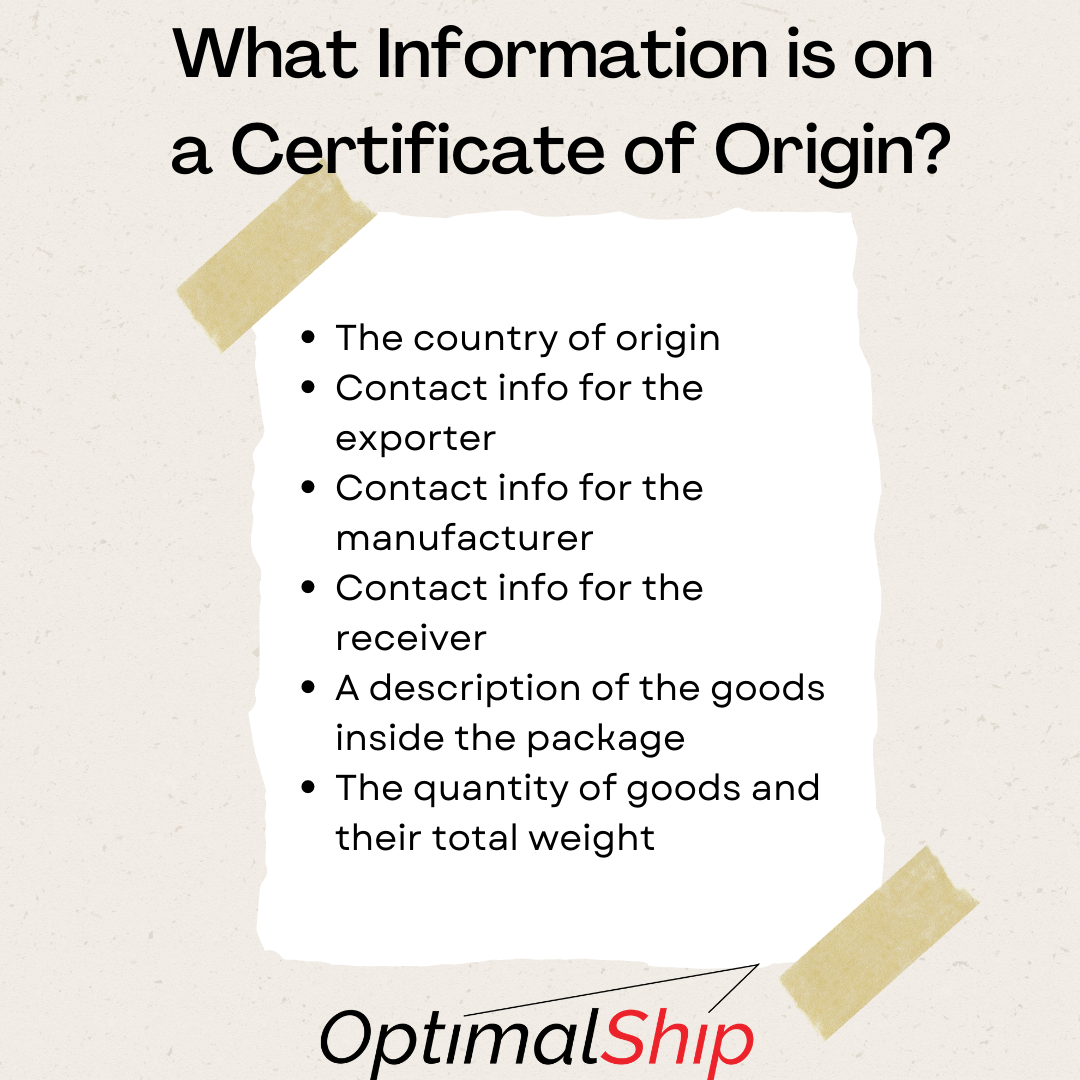When moving goods between countries, occasionally a Certificate of Origin may be requested by customs. . A certificate of origin is an official document that certifies a product or good was manufactured in a specific country.
Knowing when you need a certificate of origin will help your shipment clear customs faster. ..
What Is A Certificate of Origin?
A certificate of origin is a legal document that proves a commodity was manufactured in a certain country. The COO is typically requested to determine preferential treatment, due to trade agreements between countries. For example, in the case of Israel or Australia, a commodity may be duty free or reduced tax if it's manufactured in the US. The COO let's customs know that the country of origin that is being declared by the shipper is legitimate. The COO can also be used to determine what types of extra certifications are needed based on the country of origin. For example, some types of wood that are sourced in specific countries may require additional quarantine (or not) when being brought into other countries..
Certificates of origin allow each country’s customs to have a better understanding of what is inside a package and how it should be handled according to their regulations. The information included on certificates of origin includes:
- The country of origin
- Contact information for the exporter
- Contact information for the manufacturer
- Contact information for the receiver
- A description of the goods inside
- The quantity of goods and their weight
An item’s country of origin is determined by where the majority of its assembly or production took place. They can be preferential or non-preferential depending on how many of the raw goods used in production came from within the country of production.

A certificate of origin can be generated when you create your other shipping documents (label(s) and customs invoice). If required by customs, you will need to have it notarized by your local chamber of commerce. If you are not the original manufacturer, they may require a manufacturer's certificate before notarization.
Overall, certificates of origin allow our international trade to thrive. They allow countries to keep organized data about imports and exports, regulate their trade, and adhere to international law. Many countries have tariffs and duties on exports intended to promote commerce within their state. Being a responsible exporter by filing for a certificate of origin additionally prevents you from facing legal headaches, fines, and shipping delays.
